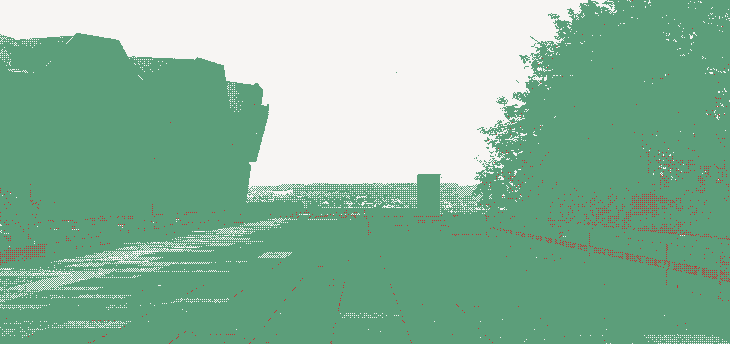
Diego Siqueira 📧
Nina Straub
Selina Luedecke
Even though the specific knowledge potential of the maps is yet to be fully explored, our project aims to make these heterogeneous historical sources available to reconstruct the industrial past of the Ruhr area, including its spatial, ecological, and demographic transformations. By digitizing maps of the Ruhr area (approximately 1,500 historical maps) and extracting structured metadata with tools such as eScriptorium and MapReader, we make both textual and visual information from the maps accessible through a digital map portal. Providing open access to these sources contributes to post-industrial societies by enabling a better understanding of the scale and dynamics of industrial interventions and their social, ecological, demographic, and industrial landscape consequences. While we do not study the processes of knowledge production per se, our digital infrastructure will allow researchers and potentially broader audiences to engage with historical sources in ways that shed light on the historical foundations of current and future post-industrial landscapes. The Ruhr area provides a compelling example of industrial transformation and decline, and our portal makes the historical sources underpinning these processes accessible for research and reflection. In addition, we see the conference as an opportunity to build networks, foster exchange, identify potential collaborators – especially colleagues experienced in conducting empirical case studies – and draw attention to our developing map portal.
Our project centers on the digital preservation and analysis of historical maps of the Ruhr area, with a focus on mining structures in the Bochum region. The collection includes geological, tectonic, topographic, coal seam, and mining maps, which are digitized, enriched with structured metadata, and enhanced with spatial annotations to highlight mining regions and extraction sites. The project addresses the question of how heterogeneous historical map materials can be made accessible and analyzable through digital methods - especially in relation to the spatial and temporal development of industrial landscapes. Due to its rarity, regional depth, and thematic specificity, this collection demonstrates the potential of Bochum and the Ruhr area as a digital research environment.
We propose a hands-on, one-day workshop in two parts, introducing participants to key digital tools while directly engaging with the material. Participants will first work with eScriptorium: after a short tutorial, they will collaboratively transcribe and extract structured metadata (e.g., title, scale, date, publisher) from map margins, as well as from the content of the map itself, supporting efficient cataloguing and data integration. In the second part, participants will use MapReader to create spatial annotations of map sections and classify them, particularly those showing mining-related content. These annotations will serve as the basis for visual outputs in the form of heatmaps, enabling analysis of historical mining activity across the Ruhr area. By combining these tools, participants will learn not only how to preserve historical cartographic heritage but also how to enhance its accessibility and analytical value for research. The workshop will also foster awareness of this material and stimulate discussion on the digital processing of historical maps.
Overall, the workshop offers an accessible yet content-rich introduction to digital map analysis, combining practical experience with methodological reflection. It is designed to foster both technical skills and critical engagement with the challenges of digitizing and exploring historical map collections. As a potential outcome, we would like to explore ideas for collaborations with participants that could continue beyond the conference.
No prior knowledge is required to participate. Some preparation, however, is necessary: Each participant will need their own computer with internet access, as both tools used are web-based. For working with eScriptorium, individual user accounts must be set up in advance. For this purpose, we will need participants’ email addresses beforehand in order to create the accounts in time. Access to MapReader is provided via Google Colab, so a Google account is required to participate in this part of the workshop.
Regarding the number of participants, we plan for a minimum of 5 and a maximum of 20. The size of the groups during the hands-on exercises will depend on the actual number of participants but will generally not exceed five people per group. This setup allows participants to work very practically and to share their own thoughts or ideas on the potential of digital tools in the concluding plenary discussion. Participants with backgrounds in geography, geology, history, social sciences (especially with experience in planning and conducting case studies), computer science, or law (particularly copyright law) are especially welcome. However, all interested colleagues are warmly invited to join!